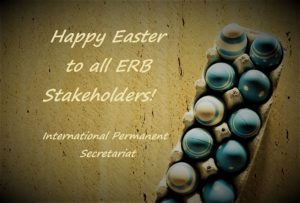On 23rd May 2017 ‘Baltic Leaders’ joined the second ERB Executive meeting of this year. Baltic Leaders are 5 young people between 16 and 25 years old, selected as representatives of the Warmińsko-Mazurskie Voivodship to take part in the LB-EME project (Baltic Leaders- Energy of the Young Europe). The aim of this project, ideated by ERB to contribute to “European integration and development of contact and cooperation between societies”, is to increase the access to knowledge, related to the international cooperation in the Baltic Sea Region. The promotion of this plan has been going on in the Youth Leadership Council of Warmińsko- Mazurskie Voivodship Youth Council since April. (more…)
- 25 years of Euroregion Baltic
- 5th Annual Forum
- 5th Annual Forum – Presentations
- 5th Annual Forum – Programme
- 6th Annual Forum
- 6th Annual Forum – Presentations
- 6th Annual Forum – Programme
- About the programme
- Annual Forum
- Archive
- Background
- CAPACITY BUILDING INITIATIVES
- Current Projects
- ERB AS ASSOCIATED PARTNER
- ERB Task Force for Climate Change and Green Transition
- ERB Water Core Group
- EUSBSR
- Gallery
- Home
- LEARN WITH US
- Magazine Front Page
- News
- Newsletter
- Pomorskie Region
- Practical Information
- Projects
- Projects
- Region Blekinge
- Region Bornholm
- Region Kalmar
- Region Klaipeda
- Region Kronoberg
- Region Warmia-Masuria
- Secretariats: Contact us
- Skåne Association of Local Authorities.
- South Baltic programme
- Youth Board
- YOUTH BOARD AND YOUTH INITIATIVES
- Youth Organisations/Projects
- 25 years of Euroregion Baltic
- 5th Annual Forum
- 5th Annual Forum – Presentations
- 5th Annual Forum – Programme
- 6th Annual Forum
- 6th Annual Forum – Presentations
- 6th Annual Forum – Programme
- About the programme
- Annual Forum
- Archive
- Background
- CAPACITY BUILDING INITIATIVES
- Current Projects
- ERB AS ASSOCIATED PARTNER
- ERB Task Force for Climate Change and Green Transition
- ERB Water Core Group
- EUSBSR
- Gallery
- Home
- LEARN WITH US
- Magazine Front Page
- News
- Newsletter
- Pomorskie Region
- Practical Information
- Projects
- Projects
- Region Blekinge
- Region Bornholm
- Region Kalmar
- Region Klaipeda
- Region Kronoberg
- Region Warmia-Masuria
- Secretariats: Contact us
- Skåne Association of Local Authorities.
- South Baltic programme
- Youth Board
- YOUTH BOARD AND YOUTH INITIATIVES
- Youth Organisations/Projects
